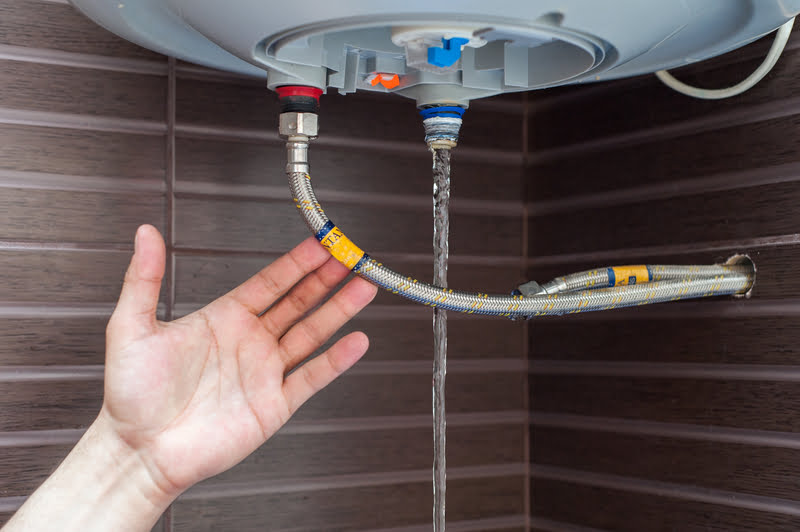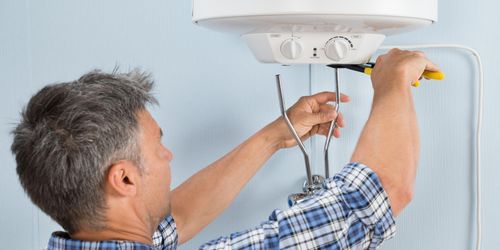Managing the Primary Water Heater Urgencies
Managing the Primary Water Heater Urgencies
Blog Article
This post following next pertaining to Common Hot Water Heater Problems is seriously compelling. Don't miss it.

A hot water heater is one of the most essential standard devices that can be found in a home. With water heaters, you don't need to experience the anxiety of heating water by hand each time there is a need to take a bath, wash, or the dishes. There is always a possibility that your water heating unit would certainly act up as with the majority of mechanical tools.
It is essential to note any type of little malfunction and also tackle it promptly prior to points leave hand. A lot of times, your water heater starts to malfunction when there is a build-up of debris as a result of continual use. As a safety measure, regular flushing of your water heater is advised to avoid sediment build-up as well as avoid functional failing.
Common hot water heater emergency situations and just how to manage them
Leaky water heater storage tank.
A dripping storage tank could be an indicator of corrosion. It could cause damage to the flooring, wall as well as electric tools around it. You might even go to risk of having your apartment or condo swamped. In this circumstance, you must switch off your hot water heater, permit it to cool, and also carefully look for the source of the trouble. Sometimes, all you require to do is to tighten a few screws or pipeline links in cases of minor leaks. But if this does not function as well as the leak lingers, you may require to employ the services of a specialist for a proper substitute.
Fluctuating water temperature level.
Your hot water heater can start producing water of different temperature levels generally ice chilly or scalding warm. In this circumstance, the first thing you do is to guarantee that the temperature is readied to the wanted degree. If after doing this, the water temperature level maintains changing during showers or various other activities, you may have a faulty thermostat. There may be a demand to replace either the thermostat or the heating device of your water heater.
Too little hot water
It might be that the water heating unit can't sustain the hot water need for your home. You might update your water heating unit to one with a larger capability.
Stained or odiferous water
When this occurs, you require to know if the concern is from the water or the container source. If there is no amusing smell when you run chilly water, after that you are certain that it is your water heating unit that is faulty. The smelly water can be created by rust or the build-up of microorganisms or debris in the water heater storage tank.
Verdict
Some homeowners disregard little caution and also minor faults in their water heater unit. This only results in additional damage as well as a possible total malfunction of your device. You must manage your water heater faults as soon as they come up to avoid more costs and also unneeded emergency problems.
With water heating systems, you don't require to go via the stress of heating water manually every time there is a requirement to take a bath, do the washing, or the recipes. Your water heating system might start creating water of various temperatures usually ice cool or scalding warm. It may be that the water heating system can not support the warm water demand for your apartment or condo. If there is no funny odor when you run cool water, then you are particular that it is your water heater that is damaged. The odiferous water can be caused by rust or the buildup of bacteria or sediments in the water heating unit container.
Common Water Heater Issues and What You Should Do
What Type of Water Heater Do You Have?
Before we begin it’s first important that you identify the type of water heater you have on your property. There are two main types of water heaters out there: conventional and high efficiency.
Both of these types of products typically use either gas or electricity to heat power. There are also solar water heaters that use a thermal collector on the roof or yard to heat the water.
While these models are not as common, they can cut heating costs in half. In this article, we will focus on conventional and high efficiency.
How Do My Electric and Gas Water Heater Work?
Though they look similar, electric and gas water heaters work very differently. It’s important to know their basic function because often problems can be specific to the heating source.
In the electric model, a thermostat on the side of the machine detects the temperature of the water in the tank. When the temperature needs to rise electricity flows to a heating element suspended in the water.
Gas models also use a thermostat device — typically with a mercury sensor at the tip and an additional sensor called a thermocouple. The thermocouple detects whether the pilot light is on and controls the flow of gas.
When the thermostat drops below the appropriate level gas is released which becomes ignited by the pilot light. The flame heats the bottom of the water tank which causes hot water to rise and cold water to drop.
This natural circulation continues until the water reaches the desired temperature. Then, the thermostat triggers the gas control valve to shut off the flow of gas.
What Are the Most Common Issues and How Do You Fix Them?
https://happyhiller.com/blog/common-water-heater-issues-and-what-you-should-do/

I hope you liked our part on Warning Signs You Need Water Heater Repairs. Thank you for finding the time to read our post. If you enjoyed our article if you please be sure to share it. Thanks so much for taking the time to read it.
Schedule Services Report this page